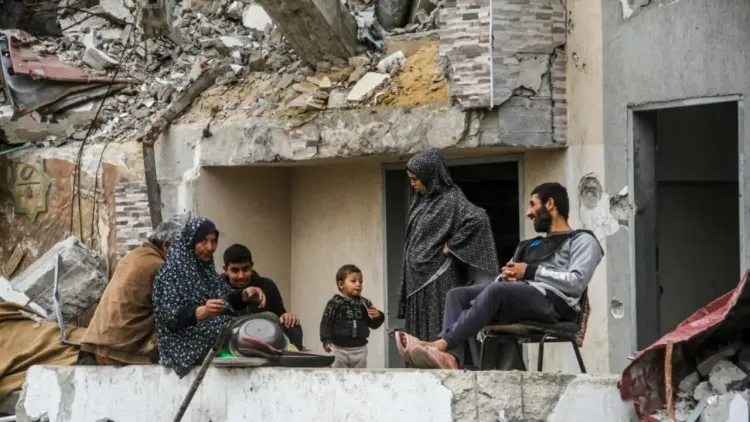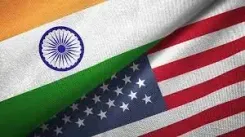UN Humanitarian Efforts Amplify Gaza Aid Pipeline with Ceasefire on Horizon

Synopsis
Key Takeaways
- UN mobilizes aid for Gaza with ceasefire.
- WHO delivers critical supplies to hospitals.
- UNRWA faces challenges amid conflict.
- Immediate access to humanitarian aid is essential.
- Political transition necessary post-ceasefire.
United Nations, Jan 18 (NationPress) UN humanitarians announced that they and their partners are organizing provisions for an expanding pipeline of aid and commercial goods flowing into Gaza with the anticipated implementation of a long-awaited ceasefire.
The UN Office for the Coordination of Humanitarian Affairs (OCHA) stated that efforts are underway to enhance the distribution of cash to those in need, allowing them to rely less on aid and take advantage of available commercial goods. Relief organizations aim to assist hundreds of thousands of individuals with basic shelter, contingent on their access to necessary supplies, as reported by Xinhua news agency.
The World Health Organization (WHO) reported that a mission successfully reached the fuel-deprived Al-Awda Hospital in the North Gaza governorate on Wednesday. The team delivered 5,000 liters of fuel, food packages, bottled water, winter attire, and vaccines. Two critically ill patients and their companions were prepared for transfer to Al-Shifa Hospital in Gaza City.
According to WHO, 33 patients and around 30 companions remain at Al-Awda Hospital, supported by a dozen doctors, about twenty nurses, and 16 administrative staff. Access to the hospital remains incredibly challenging and perilous for patients.
The health agency mentioned that during the operation, "a bullet struck an ambulance belonging to the Palestine Red Crescent Society. Thankfully, no injuries were reported. However, the incident highlights the necessity of the ceasefire in ensuring safe access to civilians."
Philippe Lazzarini, commissioner-general of the UN relief agency for Palestinians (UNRWA), briefed the Security Council in a closed session but later addressed reporters. He called for the full enforcement of the cessation of hostilities set for Sunday.
UNRWA is confronting substantial challenges with the deaths of over 200 workers during the 15-month conflict in Gaza and Israel's threat to shut it down at the end of the month, citing allegations of infiltration by members of Hamas.
"We require rapid, unhindered, and uninterrupted humanitarian access to address the immense suffering in Gaza," he stated. "We are prepared to assist in the recovery of Gaza by resuming education and continuing to provide primary healthcare."
Lazzarini warned that the complete execution of Israeli legislation aimed at restricting UNRWA would be disastrous, severely weakening the humanitarian response and exacerbating living conditions.
He refuted the Israeli government's assertion that UNRWA's services could be transferred to other entities.
"UNRWA's capacity to directly deliver education and primary healthcare is far superior to that of any other organization," he emphasized. "These services can only be transferred to a functioning state. The personnel and services of UNRWA are deeply integrated into the social fabric of Gaza. The disbandment of the agency will escalate the breakdown of social order."
He also added that dismantling the 30,000 member UNRWA without a political framework would undermine the ceasefire agreement and hinder Gaza's recovery and political transformation.
"A chaotic dissolution of UNRWA will irreversibly damage the lives and futures of Palestinians," Lazzarini warned. "It will obliterate their trust in the international community and any solutions it seeks to implement."
He argued that a ceasefire in Gaza must be succeeded by a political transition that encompasses an orderly conclusion of UNRWA's General Assembly mandate and the transfer of its public-like services to empowered Palestinian institutions.










